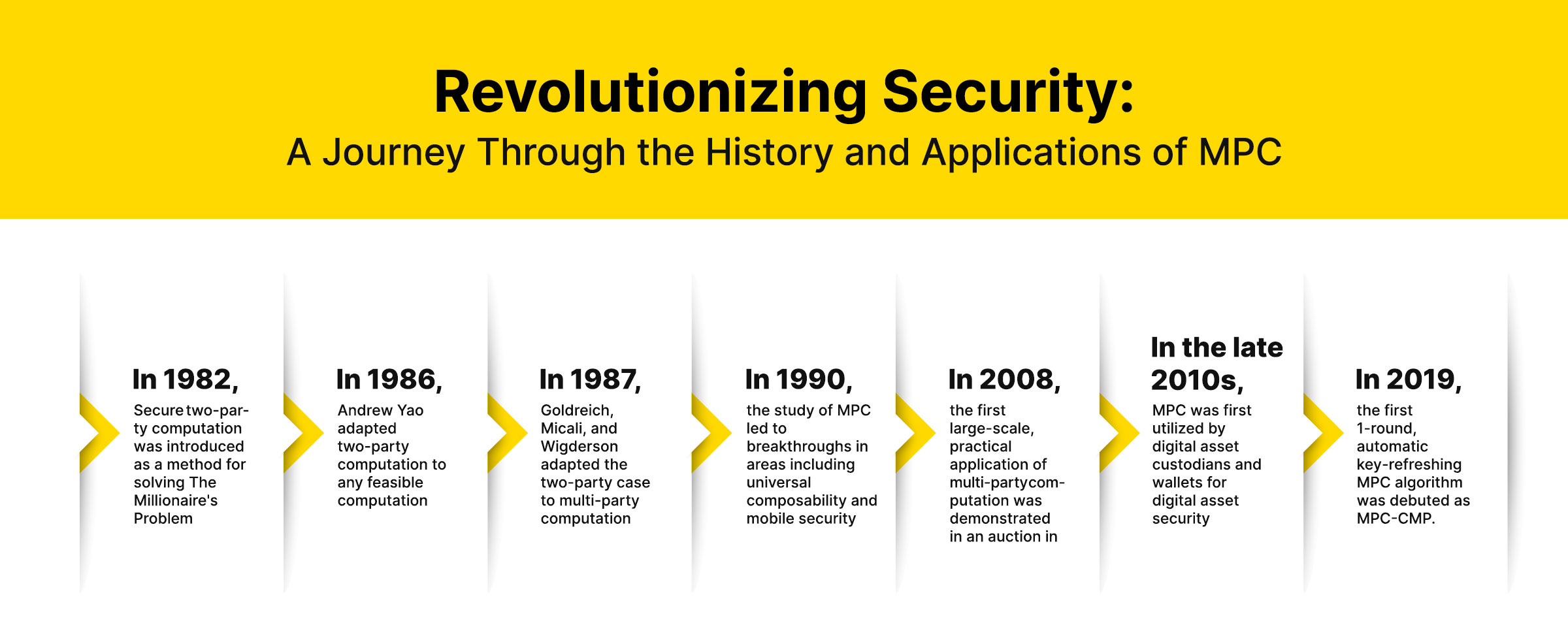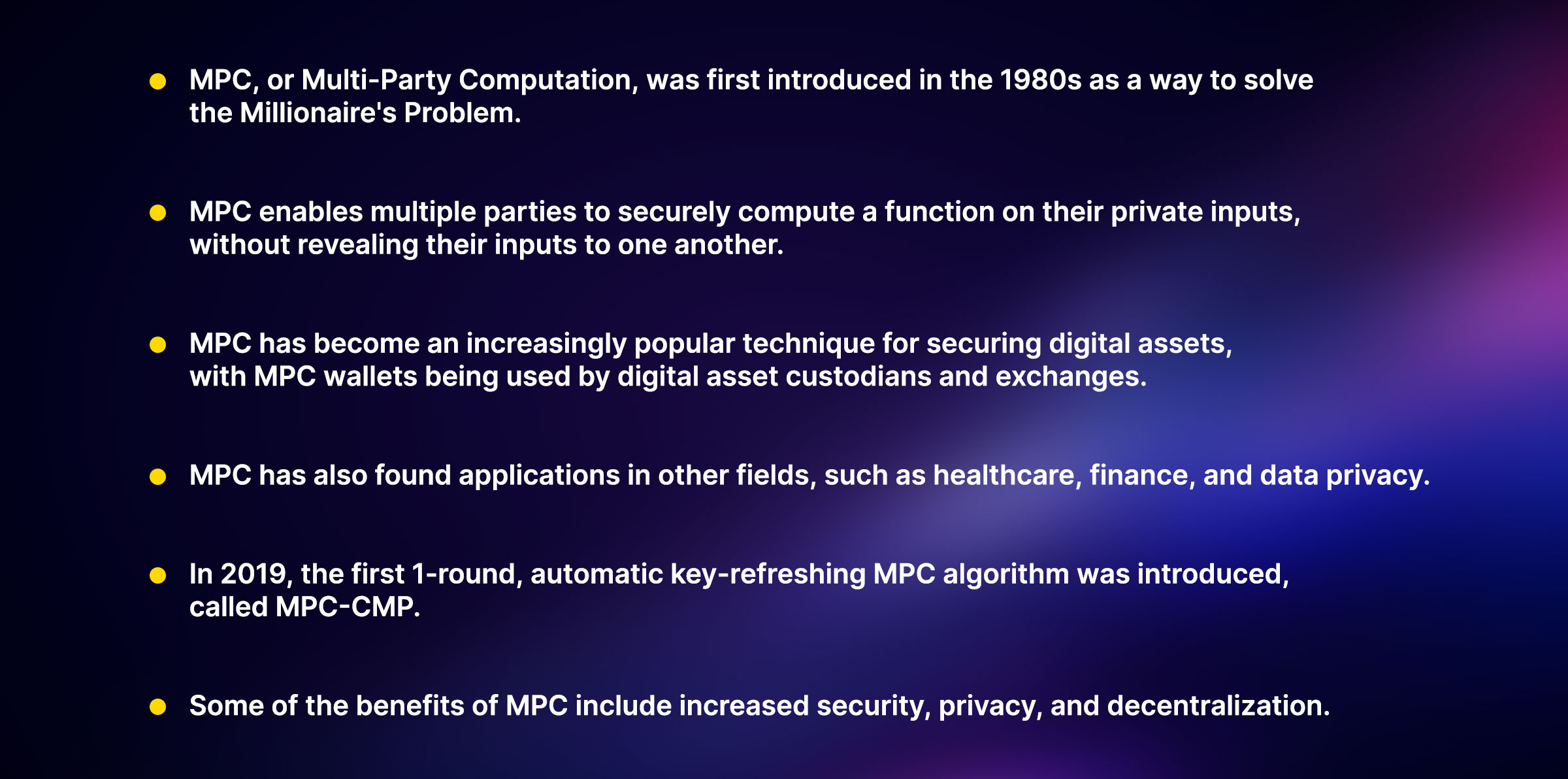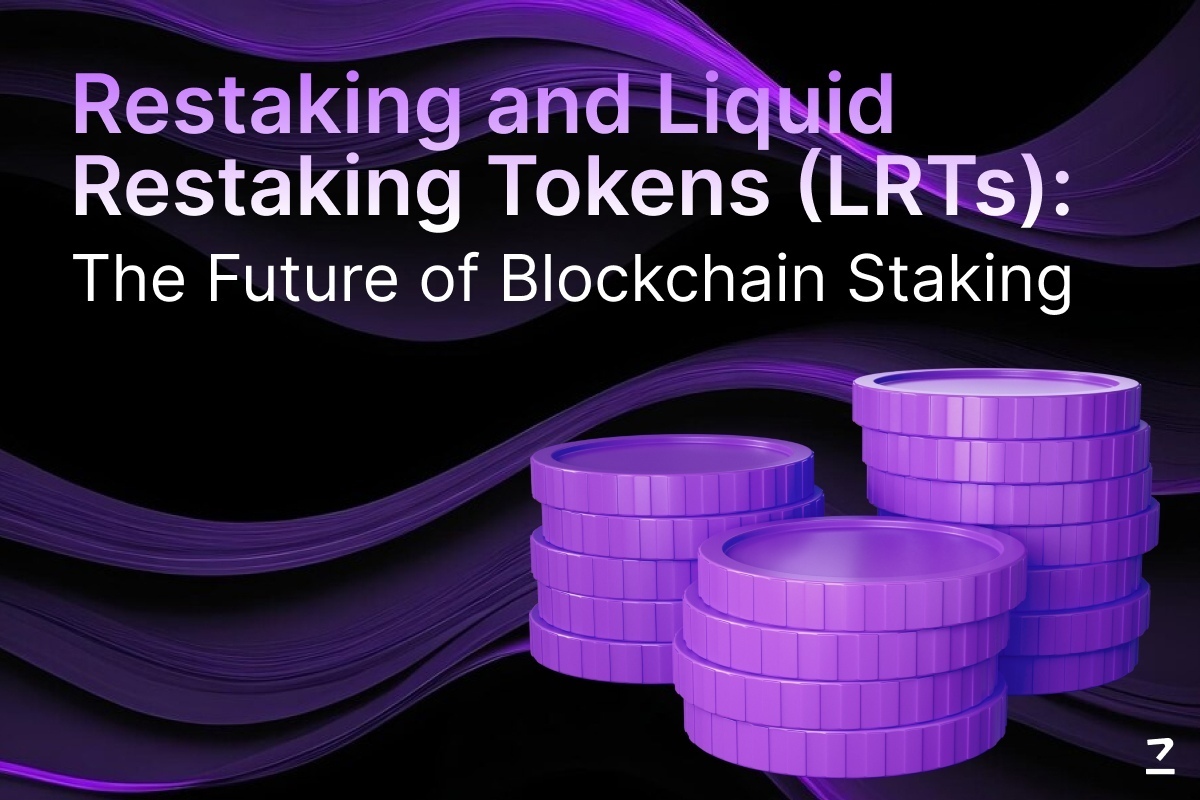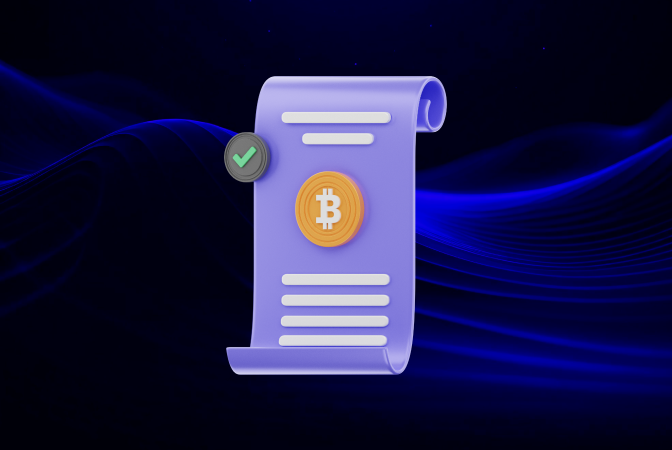SHARE THIS ARTICLE
A brief idea of how MPC wallets work

If you operate in the institutional digital asset sector, particularly in crypto wallet development, you may have encountered the term MPC or multi-party computation. While MPC theory dates back to the early 1980s, it has only recently gained significance in the digital asset space. Today, MPC is one of the foremost technologies utilized by wallet providers and custodians to safeguard crypto assets. In this blog, we will delve into the intricacies of multi-party computation and explore its workings, advantages, and relevance in digital asset security.
What is an MPC Wallet?
An MPC (multi-party computation) wallet is a type of cryptocurrency wallet that uses multi-party computation to secure private keys and transactions.
In traditional cryptocurrency wallets, a single user holds the private key needed to access and spend their digital assets.
MPC wallets split the private key into multiple shares and distribute them across different parties. These parties then work together to reconstruct the private key when needed, using advanced mathematical algorithms.
MPC wallets are designed to be more secure than traditional wallets, as they reduce the risk of a single point of failure. If one party is compromised, the attacker would not have enough information to access the wallet; they would need to compromise multiple parties simultaneously. This makes it more difficult for hackers to steal the digital assets stored in the wallet.

MPC wallets also offer greater flexibility and convenience compared to other types of wallets. For example, they can be used to set up complex spending rules and transaction limits, allowing users to customize their wallets to their specific needs. They can also be used to securely store a wide range of digital assets, including cryptocurrencies and other forms of digital assets.
Overall, MPC wallets offer a higher level of security and flexibility than other types of cryptocurrency wallets, making them a popular choice for investors and traders who want to keep their digital assets safe and secure.
How do MPC Wallets Work?
MPC wallets use advanced cryptography to secure private keys and transactions. The technology behind multi-party computation is based on mathematical algorithms that allow multiple parties to jointly compute a function without revealing their individual inputs. This process ensures that the private key remains secure even if some of the parties in the network are compromised.
The private key is split into pieces using a process called secret sharing. Each party in the network is assigned a share of the private key, but no single party has access to the complete key. The shares are then combined using a mathematical function to reconstruct the full private key when it is needed for a transaction.
The MPC protocol ensures that no party can access the private key without the cooperation of the other parties in the network. This makes it virtually impossible for an attacker to steal the key, as they would need to compromise multiple parties simultaneously.
MPC wallets offer several advantages over traditional wallets. Firstly, they provide enhanced security by eliminating the risk of a single point of failure. Secondly, they offer greater privacy since no single party ever has access to the complete private key. Finally, they allow for greater customization and flexibility in terms of network configuration.
Examples of MPC Wallets
There are several MPC wallets currently available in the market. Here are some of the most popular ones:
-
Unbound Tech: Unbound Tech offers an MPC-based solution for securing digital assets. Their solution provides secure key management and transaction signing services and can be integrated with existing wallets and custody solutions.
-
Fireblocks: Fireblocks is a platform that provides secure storage and transfer of digital assets. Their MPC-based solution allows for secure multi-party computation, enabling institutions to securely store and transfer large amounts of digital assets.
-
Curv: Curv provides a cloud-based MPC wallet solution for institutions. Their platform offers secure key generation, storage, and signing services, with a user-friendly interface that simplifies the process of managing digital assets.
-
ZenGo: ZenGo is a mobile wallet that uses MPC to secure private keys. The wallet offers an easy-to-use interface and supports multiple cryptocurrencies, making it a popular choice for retail investors.
-
KZen Networks: KZen Networks offers an MPC-based solution for securing digital assets. Their wallet is designed for institutional investors and offers advanced security features like threshold signatures and multi-layer encryption.
When choosing an MPC wallet, it's important to consider factors like security, ease of use, and compatibility with other solutions. Each of the wallets listed above has its own unique features and benefits, so it's important to do your research and choose the one that best meets your needs.

Possible vulnerabilities and risks associated with MPC wallets
MPC wallets offer a high level of security compared to other types of wallets, but there are still risks and vulnerabilities to be aware of. Here are some security considerations to keep in mind when using an MPC wallet:
-
Multi-Party Computation: The use of MPC technology is a key security feature of MPC wallets. MPC enables multiple parties to jointly compute a function without any party learning the input of other parties. This means that even if one of the parties is compromised, the private key remains secure.
-
Secure Hardware: MPC wallets use secure hardware to protect against attacks. The hardware is designed to resist tampering and intrusion and to prevent the extraction of private keys.
-
Key Management: MPC wallets employ advanced key management techniques to protect private keys. These techniques include threshold signatures, which require multiple parties to sign a transaction, and Shamir's Secret Sharing, which splits a private key into multiple shares, each of which can be held by a different party.
-
Reputation of Provider: It's important to select a reputable MPC wallet provider to ensure that your digital assets are safe. Look for providers that have a track record of security and reliability, and that are transparent about their security practices.
-
Possible Vulnerabilities: Despite their advanced security features, MPC wallets are not immune to all forms of attack. For example, there have been instances of attackers exploiting vulnerabilities in the MPC implementation to gain access to private keys. It's important to stay up-to-date on the latest security developments and to take appropriate measures to protect your assets.
MPC is expected to gain more popularity in the future due to its ability to provide secure computation and data privacy for various industries, including finance, healthcare, and government. The advancements in cryptography and distributed systems will further enhance the capabilities of MPC.
Take your digital asset security to the next level with an MPC wallet. As you've learned, MPC wallets provide a range of benefits over traditional wallets, including enhanced security, privacy, and ease of use. To experience the advantages of MPC wallets firsthand, we encourage you to research and select a trusted MPC wallet provider that can meet your specific needs in terms of Wallet Development Services. Don't wait - start exploring your options today.
Post Author

As a distinguished blockchain expert at Codezeros, Paritosh contributes to the company's growth by leveraging his expertise in the field. His forward-thinking mindset and deep industry knowledge position Codezeros at the forefront of blockchain advancements.




